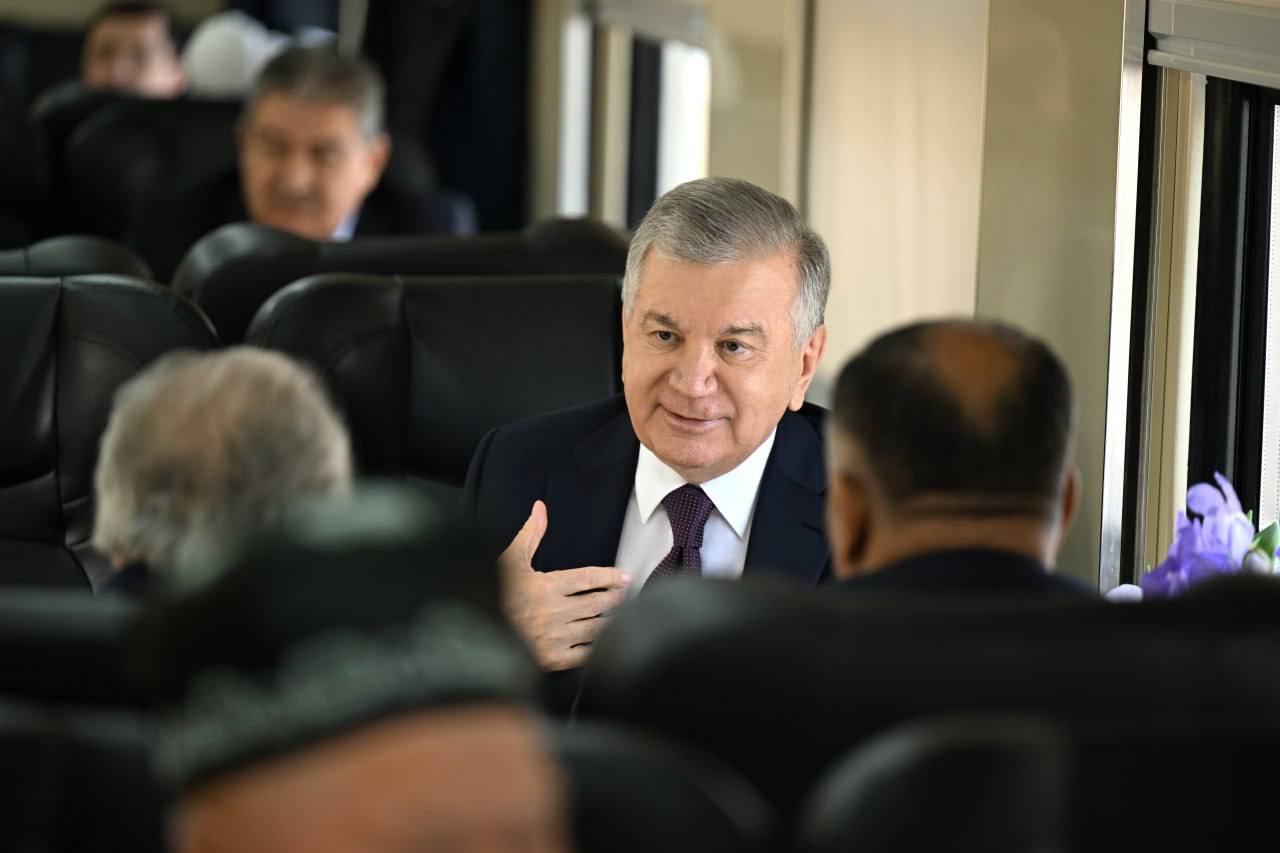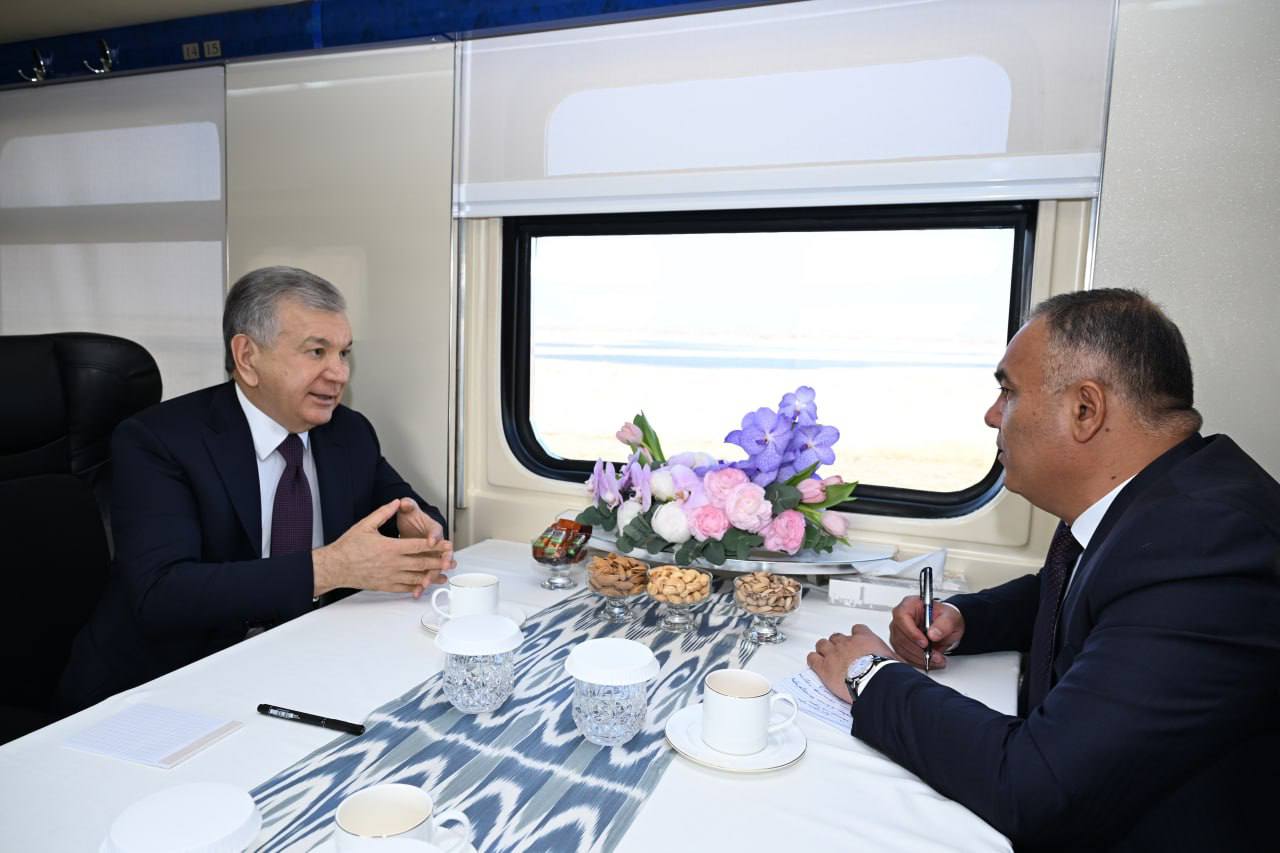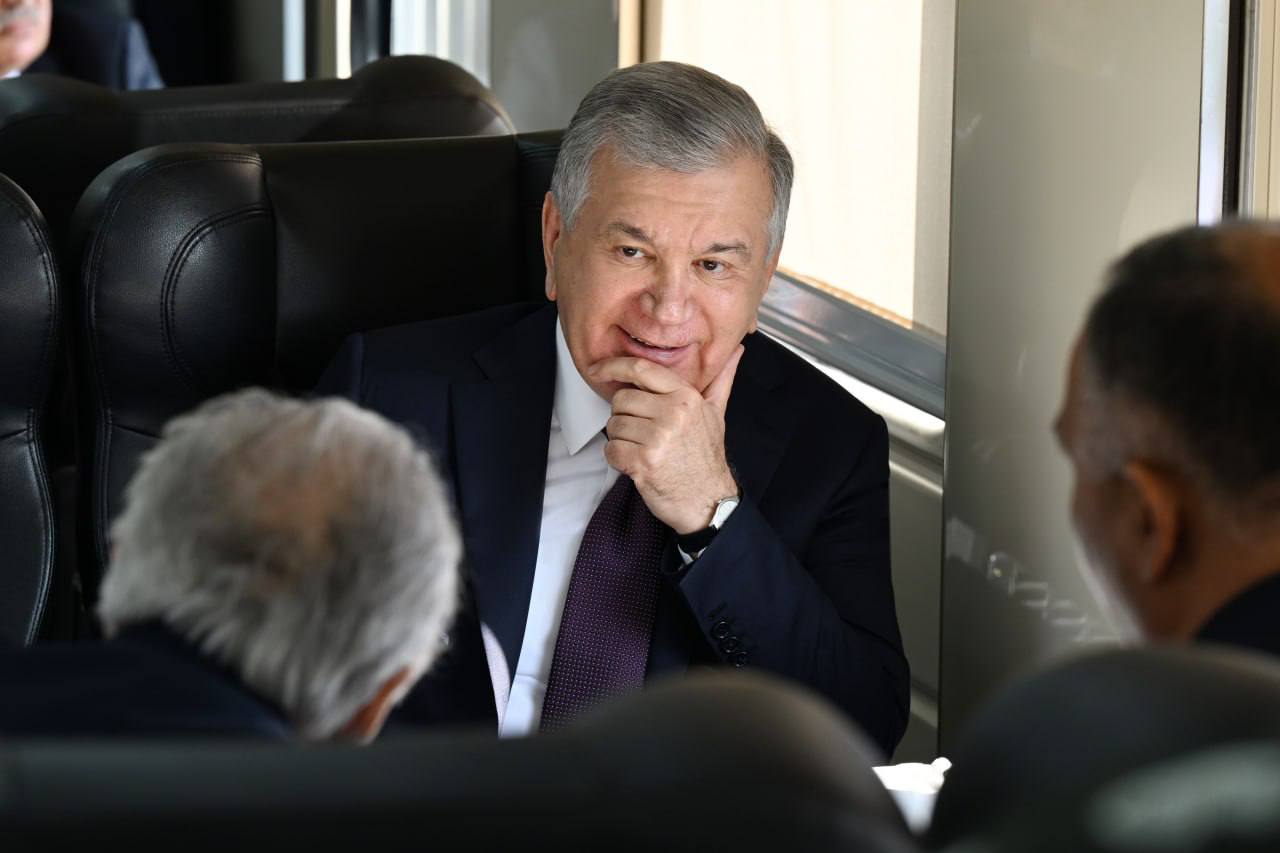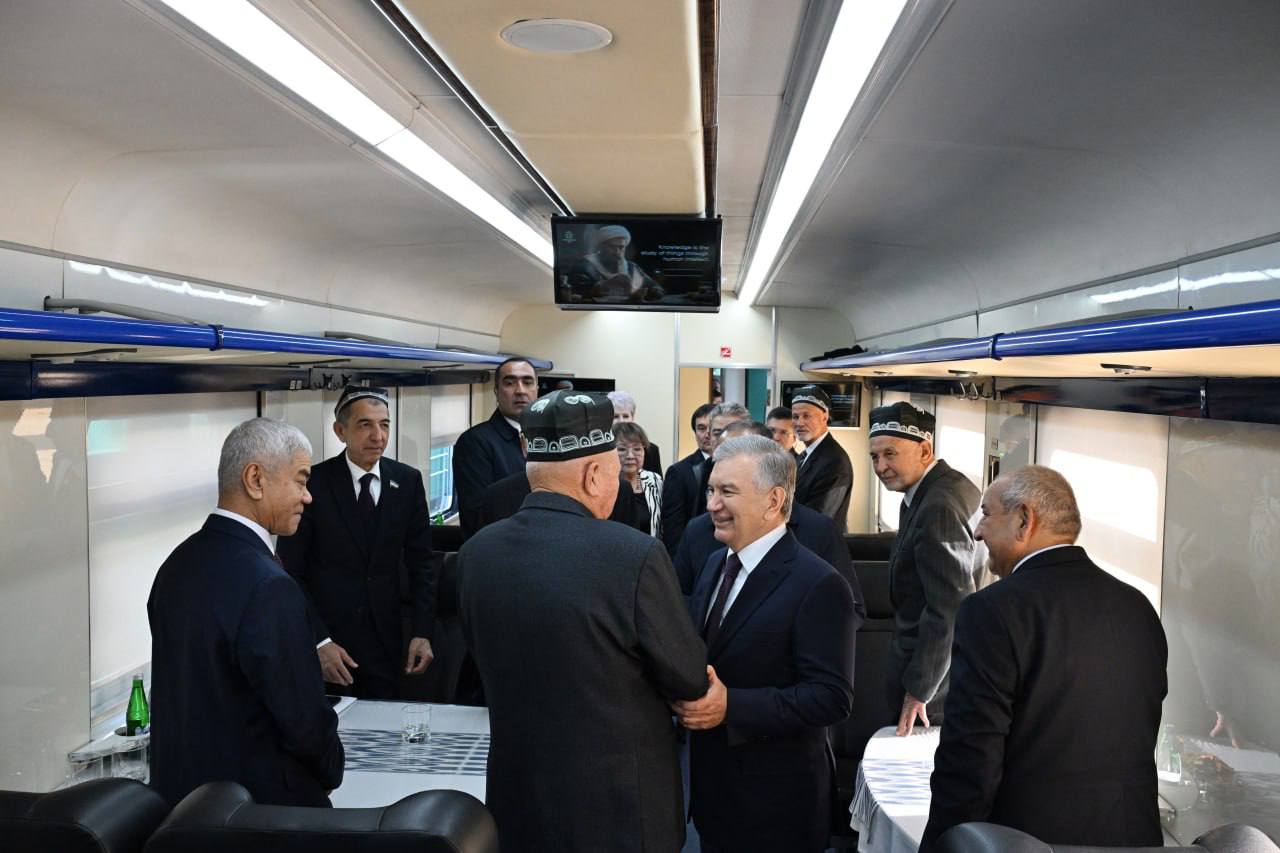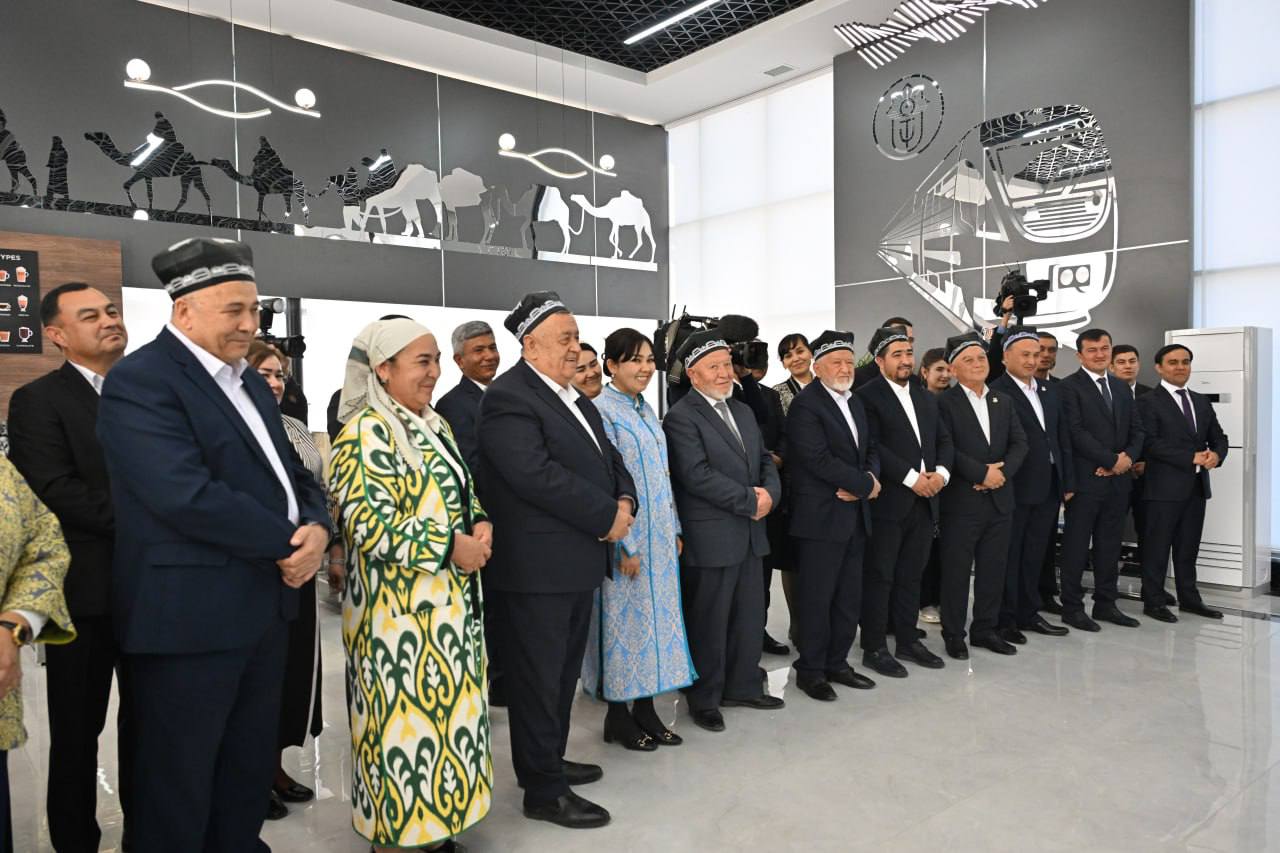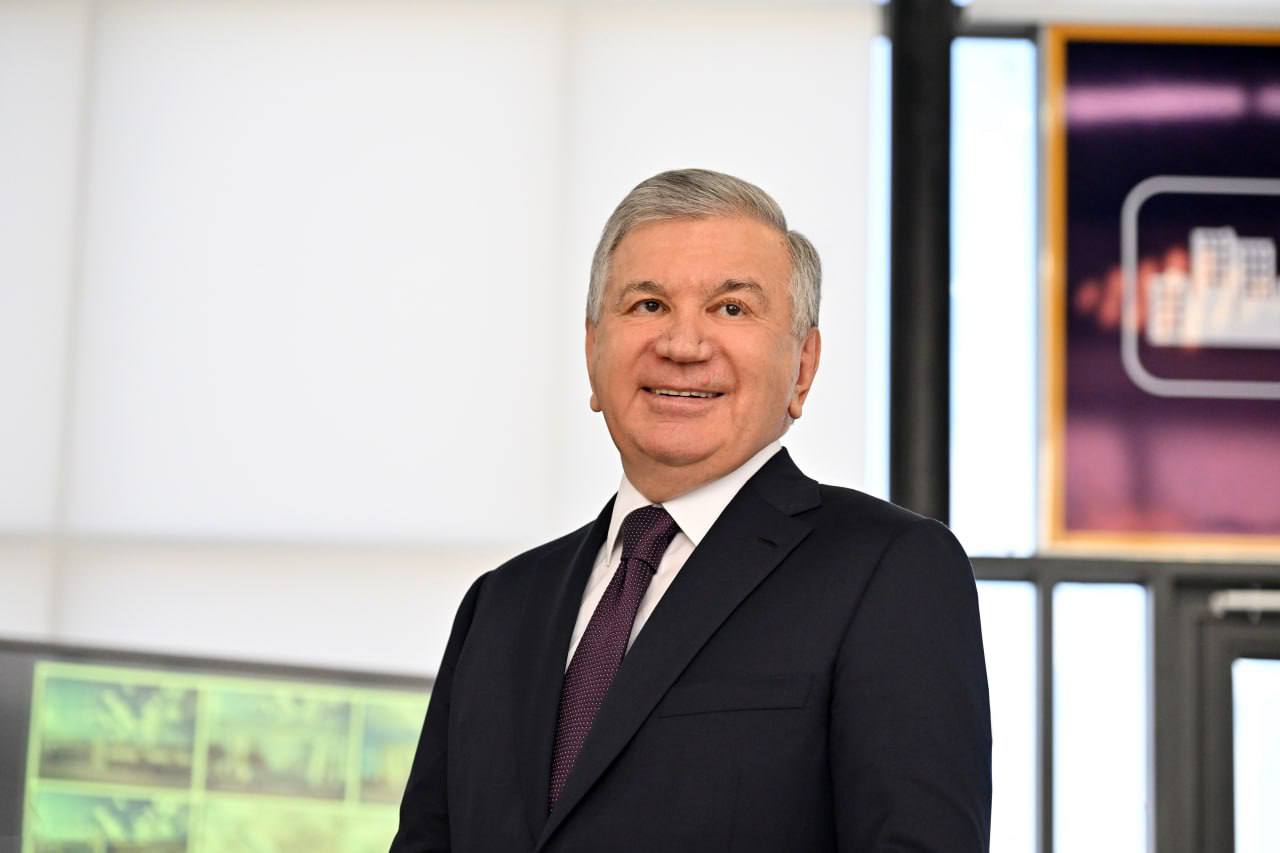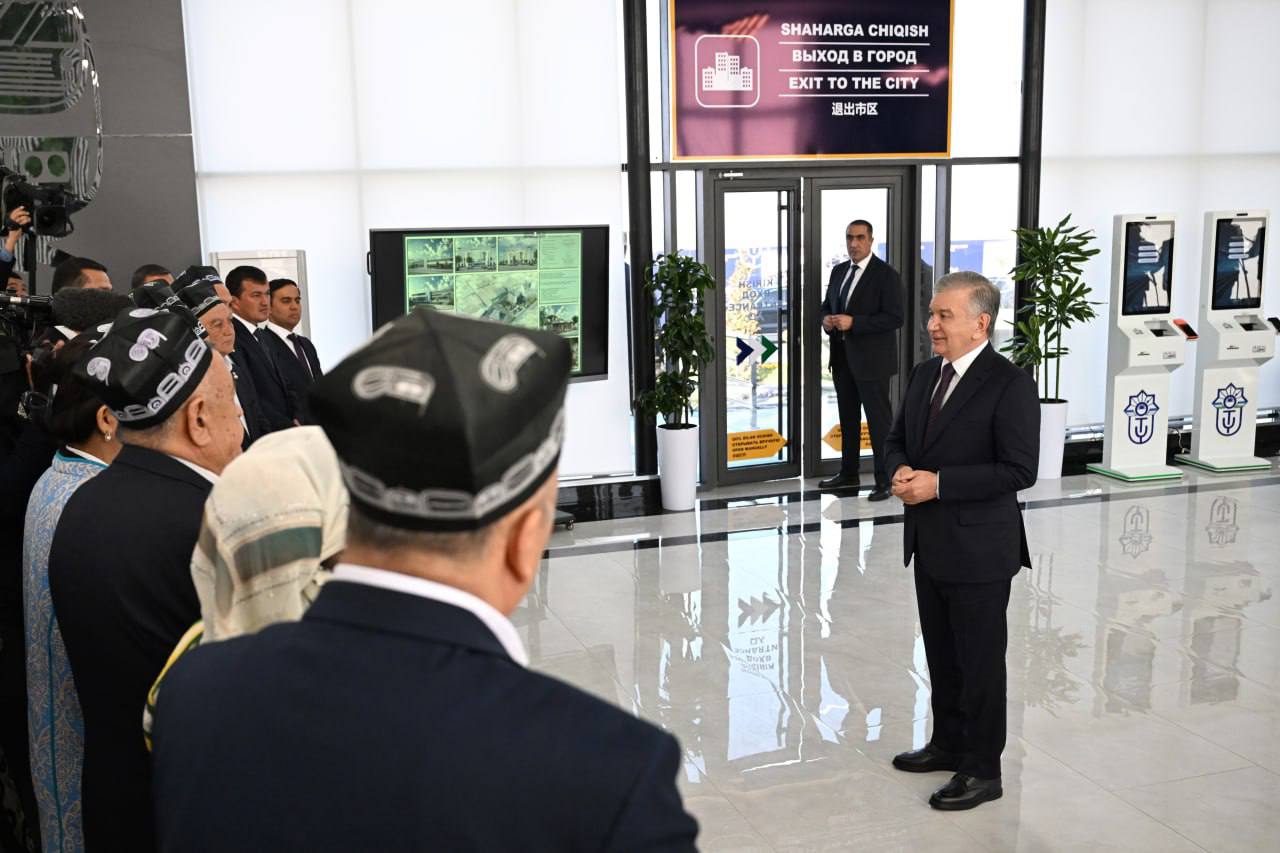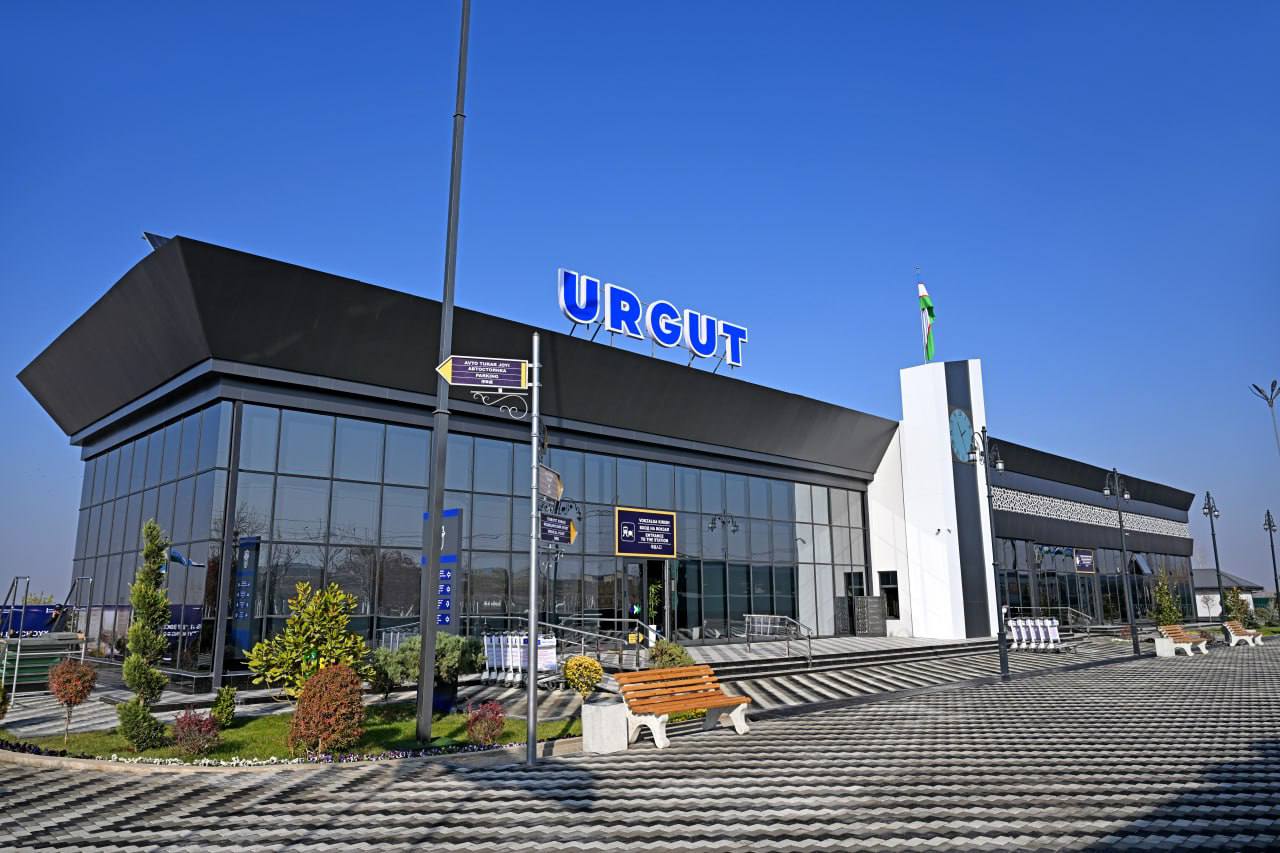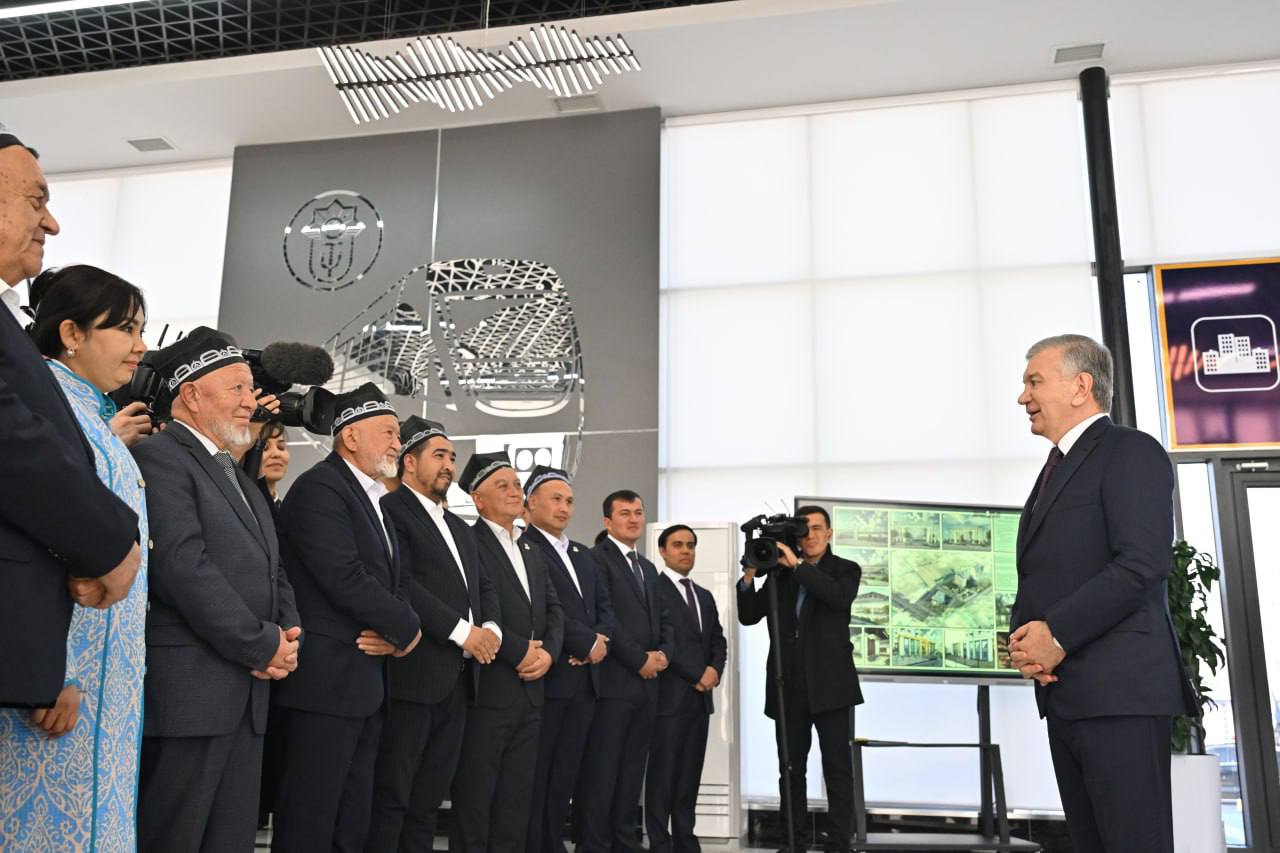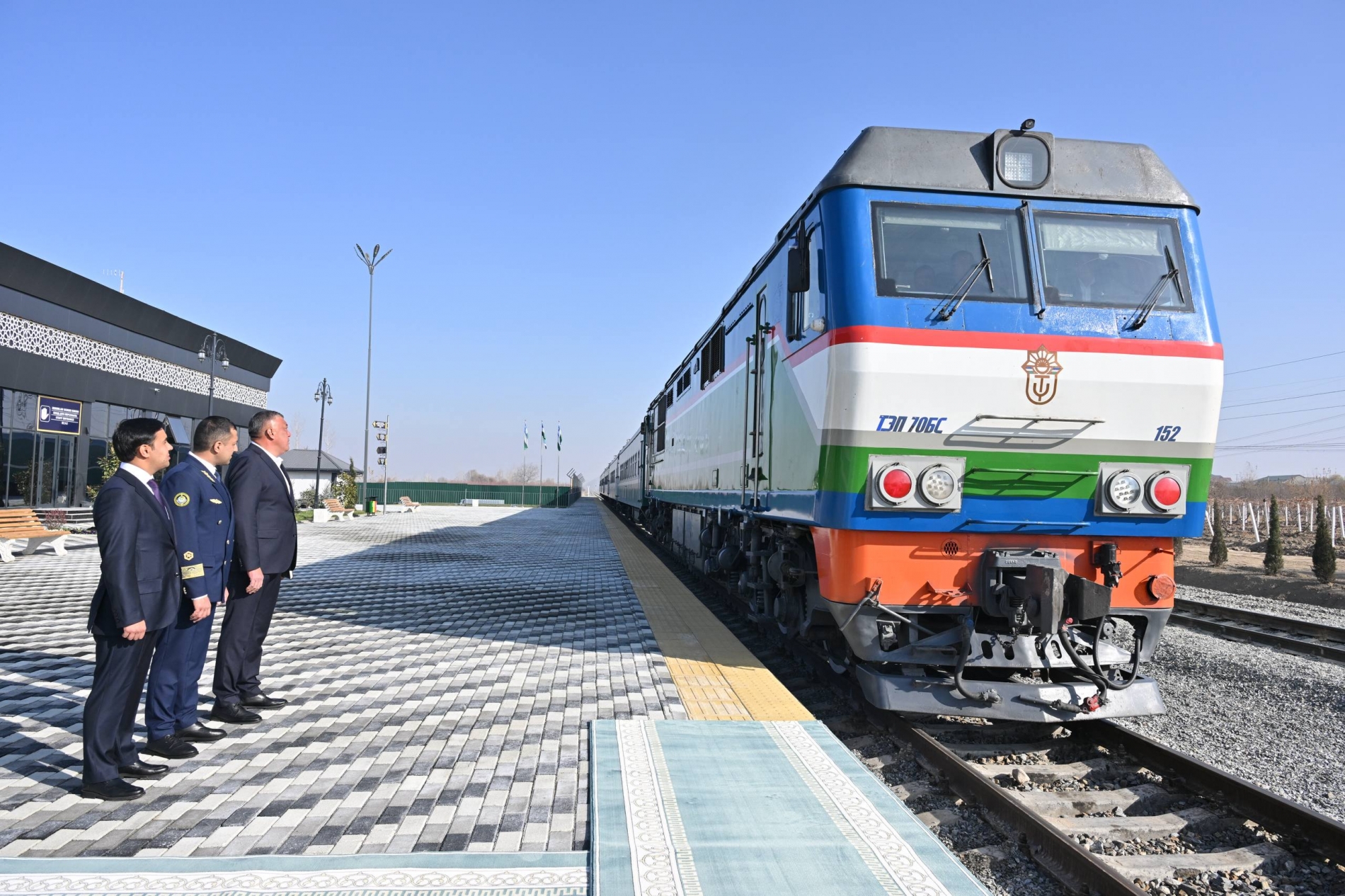
25.11.2025
President Shavkat Mirziyoyev got acquainted with the ongoing works on developing new railway line “Samarkand – Urgut”.
The construction of this rail road began in February this year, its total length is 55 kilometres. Two railway stations and cargo stations in the “Urgut” free economic zone and a range of bridges were built in the framework of the project. In the long term full electrification of the line is planned.
The new line will allow the movement of two pairs of inter-city trains and nine pairs of cargo trains. The completion of the project is planned by the end of the year. The launch of the train movement will enable to service 359 thousand passengers and transport 8,2 million tons of cargo per year.
The line is especially significant due to ensuring the residents of Samarkand city, and Djambay, Pastdargom, Taylak and Urgut districts with safe and modern transport services. Moreover, it will give a new momentum to the development of internal tourism.
The railroad infrastructure is one of the key sectors of the economy, and this project will facilitate further development of the “Urgut” free economic zone potential. The launch of the new line will create 130 new jobs.
The Head of our state together with the public representatives took a train to Urgut.
During the trip, the President gave additional instructions to responsible officials regarding the development of railway infrastructure, further improvement of passenger comfort, electrification of lines, and enhancement of adjacent areas. He also drew attention to ongoing construction and landscaping work along the railway.
It was noted that Urgut district, as a territory with great potential, is becoming increasingly significant. The local population is distinguished by a strong entrepreneurial spirit. In the development of such strategically important districts for the country’s economy, modern logistics and infrastructure play a decisive role.
With the introduction of the new railway in Urgut, obstacles will be removed, and logistical “bottlenecks” that previously restricted economic growth will be eliminated. Cargo transportation will accelerate, the delivery of goods to markets will become cheaper and faster, and additional conveniences for investors will expand, ultimately increasing the region’s competitiveness.
Most importantly, the new opportunities being created in the region will have a direct positive impact on the population’s standard of living. In areas with developed infrastructure, the number of jobs increases, services improve, and entrepreneurial activity intensifies.
It was noted that this project is an important link in the work to modernize and expand the railway network. Emphasis was placed on the need for timely and high-quality completion of work, the broad introduction of digital technologies, and cost optimization.
During the conversation held on the train, it was mentioned that the social and economic transformations taking place in Samarkand are having a clearly visible positive impact on people's lives.
Special attention was given to educating young people in the spirit of patriotism and instilling in them the qualities needed to become creators of the New Uzbekistan. It was also emphasized that the land adjacent to the railway line laid to Urgut should be developed, agricultural culture in these areas should be improved, and cooperation in the field of education, including with neighboring countries, should be strengthened.
The Urgut railway station is one of the key stations of the new line. The President drew attention to tasks related to the station’s infrastructure, service system, and the organization of passenger flow. It was emphasized that creating conveniences for tourists is important.
Here, the Head of State also held a warm conversation with the leadership and active representatives of the Urgut district. The discussion focused on the ongoing changes in the region, people’s living standards, and the importance of maintaining peace.
It was noted that improving living conditions, increasing incomes and well-being, and developing mahallas remain among the main priorities of state policy. It was emphasized that structural changes in the economy are bearing fruit: major projects are being implemented in industry, agriculture, tourism, transport, and energy.
Representatives of the older generation noted that these changes are clearly reflected in people’s lives and that the public highly appreciates the reforms being carried out.
The President also reviewed a presentation of additional projects aimed at improving the quality of life and economic attractiveness of the area surrounding the station. At the initiative of entrepreneurs, plans include building a bus terminal, a traditional chaikhana (teahouse), an eco-market, residential buildings, private schools, and kindergartens.
As a result of these projects, new types of services will become available to residents, the district’s social infrastructure will improve, and business activity will further increase. Most importantly, around 350 permanent jobs will be created, giving an additional boost to the region’s economic growth.

